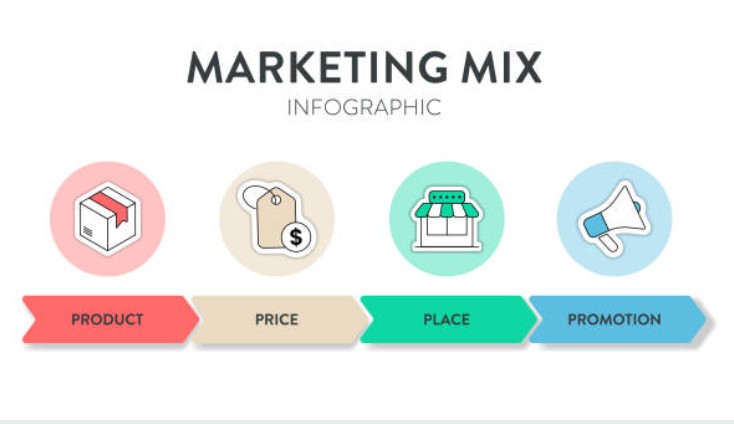How To Get Into Marketing Without Experience? – 12 Best Ways
Last Updated on
Are you having this question inside you, “How To Get Into Marketing Without Experience?” Breaking into the marketing field without prior experience can seem daunting, but it’s entirely possible with the right strategies. Here are 12 best ways to get started in marketing and build a successful career.
1. Educate Yourself
Marketing is a dynamic field, and continuous learning is key. Start by enrolling in online courses to gain foundational knowledge. Websites like Coursera, Udemy, and LinkedIn Learning offer courses on various marketing topics such as digital marketing, SEO, content marketing, and social media marketing.
Reading books, blogs, and industry publications can also provide valuable insights. Subscribe to marketing blogs, listen to relevant podcasts, and stay updated with the latest trends and techniques in the industry.
2. Gain Certifications
Certifications can bolster your resume and provide proof of your marketing knowledge. Consider earning certifications from recognized organizations like Google (Google Analytics, Google Ads), HubSpot (Inbound Marketing, Content Marketing), and Facebook (Facebook Blueprint). These certifications demonstrate your commitment to learning and can make you stand out to potential employers.

3. Build a Personal Brand
Creating and promoting your personal brand is a powerful way to showcase your skills and knowledge. Start a blog or a website where you can share your insights, write articles, and demonstrate your expertise. Use social media platforms to network with industry professionals and share valuable content related to marketing.
Maintaining an active online presence can help you connect with industry leaders and potential employers, providing opportunities for collaboration and career advancement.
4. Volunteer or Intern
Volunteering or interning is a great way to gain hands-on experience. Look for opportunities with local businesses, non-profits, or startups that need marketing assistance. These positions might be unpaid, but they provide valuable experience and help you build a portfolio of work.
Internships, even short-term ones, can offer exposure to various marketing activities, from social media management to content creation and campaign execution.
5. Network Actively
Networking is crucial in the marketing industry. Attend industry conferences, seminars, and meetups to connect with professionals. Join marketing groups on LinkedIn and participate in discussions to broaden your network.
Building relationships with professionals can lead to job opportunities, mentorship, and valuable advice on breaking into the field.
6. Create a Portfolio
A portfolio showcasing your work can be a powerful tool when applying for marketing jobs. Include examples of your content creation, social media campaigns, blog posts, and any other marketing-related work you have done.
Even if your work was part of a volunteer project or an internship, including it in your portfolio can demonstrate your capabilities and creativity to potential employers.

7. Leverage Social Media
Use social media platforms to demonstrate your marketing skills. Manage your own social media accounts with a strategic approach, focusing on creating engaging content and growing your audience. Showcase your ability to build and engage a community online.
Employers often look at candidates’ social media profiles to gauge their digital presence and marketing acumen, so make sure your profiles are professional and well-curated.
8. Learn from Mentors
Having a mentor in the marketing field can provide guidance and support as you navigate your career. Look for mentors through networking events, online communities, or professional associations. A mentor can offer valuable insights, feedback on your work, and help you make informed career decisions.
Building a relationship with a mentor can also open doors to new opportunities and help you grow your professional network.
9. Stay Updated with Industry Trends
Marketing is an ever-evolving field, and staying updated with the latest trends is crucial. Follow industry news, subscribe to marketing newsletters, and join forums where professionals discuss new tools, strategies, and best practices.
Keeping up with industry trends ensures that your knowledge remains current and relevant, making you a more attractive candidate to potential employers.
10. Practice Through Personal Projects
Undertaking personal projects allows you to apply what you’ve learned and experiment with different marketing strategies. Start a blog, create a social media campaign, or build a small e-commerce site to practice your skills.
These projects not only help you gain practical experience but also serve as tangible evidence of your abilities when included in your portfolio.

11. Join Professional Organizations
Joining professional marketing organizations can provide access to resources, networking opportunities, and industry events. Organizations like the Chartered Institute of Marketing (CIM) offer memberships that include access to training, certifications, and a community of marketing professionals.
Being a member of a professional organization can enhance your credibility and provide continuous learning opportunities.
12. Tailor Your Resume and Cover Letter
When applying for marketing roles, tailor your resume and cover letter to highlight relevant skills and experiences. Focus on transferable skills such as communication, creativity, and project management. Use specific examples from your volunteer work, internships, or personal projects to demonstrate your capabilities.
Using the best resume template can help you present your information clearly and professionally, making it easier for hiring managers to recognize your key strengths. Customizing your application materials for each job shows potential employers that you have the skills and enthusiasm needed to succeed in the role. Follow these tips and you can get into marketing without experience.
Frequently Asked Questions (FAQs)
1. What are the best online courses for learning marketing?
Platforms like Coursera, Udemy, and LinkedIn Learning offer a wide range of marketing courses. Look for courses on digital marketing, SEO, social media marketing, and content marketing to build a strong foundation.
2. How can I build a portfolio without professional experience?
You can create a portfolio by including work from personal projects, volunteer opportunities, internships, and any freelance work. Showcase a variety of skills such as content creation, social media management, and campaign planning.
3. Why are certifications important in marketing?
Certifications from recognized organizations validate your skills and knowledge, making you a more competitive candidate. They demonstrate your commitment to professional development and can give you an edge in the job market.
4. How can networking help me get into marketing?
Networking connects you with industry professionals who can offer advice, mentorship, and job opportunities. Attend events, join online groups, and engage in discussions to build your network and gain insights into the marketing field.
5. What should I include in my marketing resume and cover letter?
Highlight relevant skills and experiences, even if they are from volunteer work or personal projects. Focus on transferable skills such as communication, creativity, and project management. Tailor your resume and cover letter to each job application to showcase your suitability for the role.







